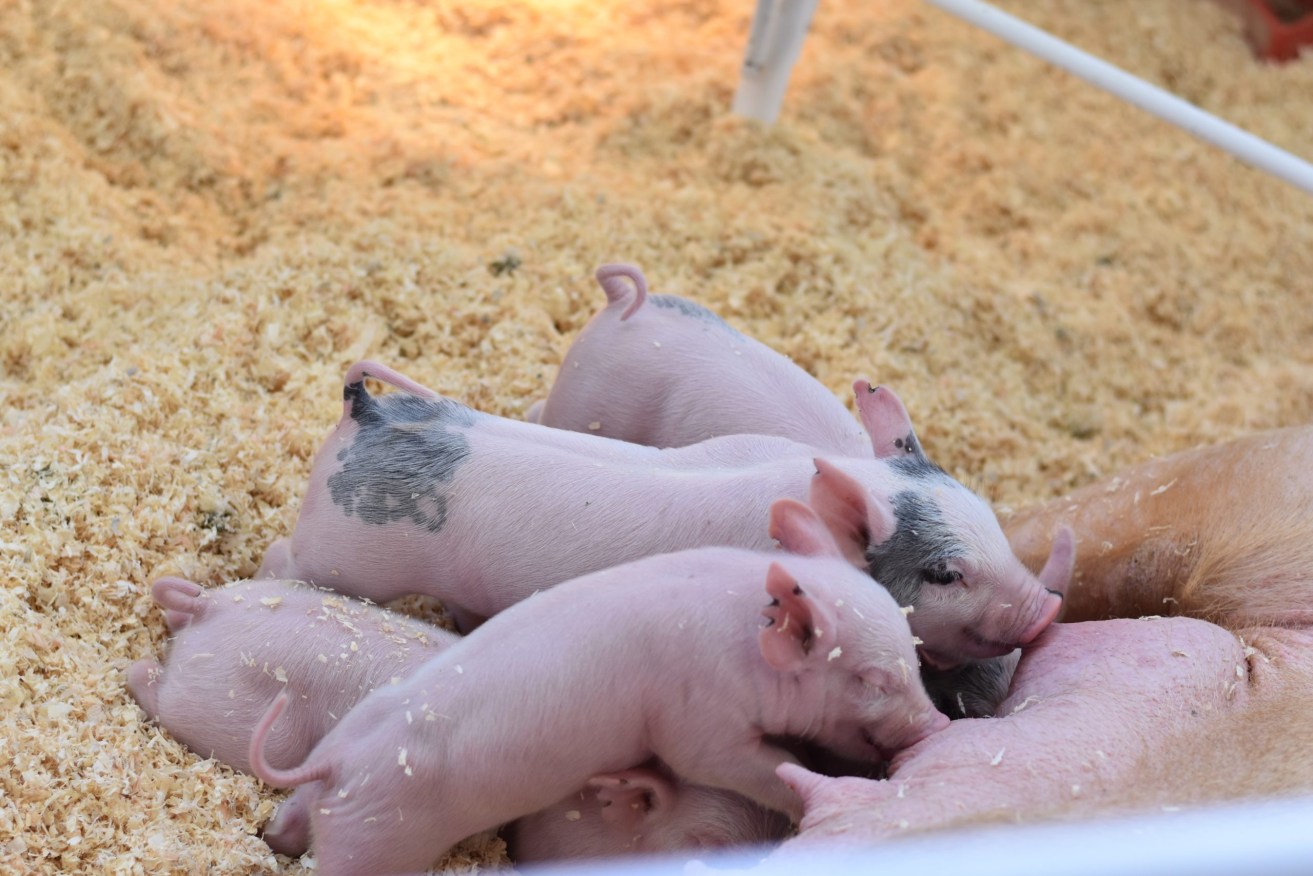Could Queensland be facing another devastating outbreak?
As African swine fever sits on Queensland’s doorstep in Papua New Guinea, what chance do our authorities have of stopping the pig-killing disease from entering the country and decimating our pork industry?


The Queensland Government is bracing for the very real possibility it could soon be simultaneously fighting two major disease incursions that will stretch biosecurity resources to the limit.
As state and federal governments continue with lockdown orders to contain the spread of COVID-19, Queensland authorities are accelerating plans to halt the spread of African swine fever (ASF), an exotic animal contagion that doesn’t infect humans but kills pigs with ruthless efficiency.
It is a race against time and the natural elements to protect the nation’s $2 billion pork industry from devastation and ensure the future of a major food supplier at a time when domestic food security is already under intense pressure from COVID-19 panic buying.
Few countries in close proximity to ASF have been able to stop its spread.
First documented in sub-Saharan Africa in 1921 where it continues to be endemic, ASF emerged in eastern Europe in 2007, first reported in Georgia before spreading to Russia, Ukraine and Belarus.
In 2014, ASF first entered the European Union in Lithuania and has since been detected in 11 member states extending as far west as Belgium.
Since 2018, there have been further outbreaks in Eastern Europe, the Russian Federation and Asia, including: China, Hong Kong Administrative region, Vietnam, Cambodia, Mongolia, Myanmar, Democratic People’s Republic of Korea, Lao People’s Democratic Republic, the Philippines, South Korea, Timor-Leste and in the North Sumatra province of Indonesia.
Last week it was detected in the Southern Highlands Province of Papua New Guinea, a comparatively short boat trip across the Torres Strait, where ASF can easily hitch a ride into Queensland’s feral pig population.
Once it crosses the coast, Queensland’s response will be hampered by the allocation of resources directed toward fighting COVID-19 and the challenge of mounting a government and industry defence in an environment curtailed by travel bans, border closures, business shutdowns and restricted population movement.
Queensland Agriculture Minister Mark Furner acknowledged the challenge in a statement when confirming the PNG detection.
“If African swine fever enters Australia, COVID-19 restrictions would affect the way industry and government responds,” he said.
“If African swine fever became established in Queensland it would be difficult to eradicate and could significantly impact pork availability, jobs and the economy.
“That is why African swine fever prevention and preparedness remains a priority for Queensland and if it is detected here in Queensland we will respond.”
Australian Pork Limited CEO Margo Andrae said security had been bolstered through the Torres Strait but she wants to see further criteria added to risk assessments on flights coming from ASF-affected countries as recommended by the Inspector General of Biosecurity.
Leading microbiologist and animal disease researcher, Associate Professor Patrick Blackall, from the University of Queensland, believes COVID-19 will help with some of those immediate priorities, but it still has the potential to hinder Queensland’s response.
“Firstly, the very much reduced movement of people, both intra-state and international is actually going to greatly lower the possibility of an unwitting entry of ASF via individuals carrying contaminated pork products, which has been the cause of many of the dissemination events in other parts of the world,” he said.
“The other potential impact is not as bright a picture. Clearly both federal and state authorities are placing considerable resources into the COVID-19 response.
“However, I am aware that the veterinary diagnostic laboratory system in Queensland is still in full operation. Support for the Queensland laboratory system would also come from the national laboratory in Geelong that is operated by CSIRO.
“This facility is also at the centre of the development of assays and the evaluation of candidate vaccines for COVID-19.
“Clearly it is not ideal to have the possibility of a very significant animal disease entry at the same time that as a pandemic is present in the nation.”

Associate Professor Patrick Blackall says managing COVID-19 and African swine fever will be difficult.
Despite his concerns that COVID-19 would reduce the ability of state and federal authorities to respond, Blackall is optimistic Queensland staff and the CSIRO will draw on the experience they have shared in the past handling exotic animal disease outbreaks such as avian influenza.
Blackall, who is based at the university’s Queensland Alliance for Agriculture and Food Innovation, said authorities here also have the benefit of “what not to do” based on the experience elsewhere, while commercial pork producers have stringent biohazard protocols in place at their piggeries.
“Farmers are now far more insistent on minimal entry of persons on to piggeries, use of shed-specific clothing and footwear, limitations on vehicle entries and so on,” he said.
“These increased preparations and increased emphasis on biosecurity give the industry, in my view, a very realistic opportunity to keep ASF out of the Queensland commercial pig herds.”
People who suspect pet pigs, farmed pigs or feral pigs have African swine fever are urged to call the Emergency Animal Disease Watch Hotline on 1800 675 888.
Queensland pork at a glance
- Queensland is the second-largest pig-producing state in Australia, with about 280 commercial pig herds.
- There are currently more than 4000 pig owners registered with Biosecurity Queensland – this includes commercial and non-commercial.
- The gross value for Queensland pig production for 2019-20 is forecast to be $242 million.








